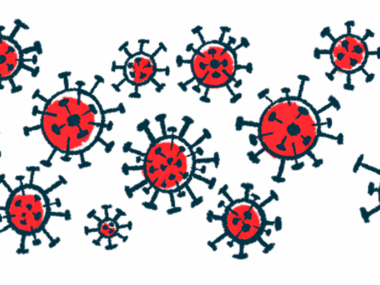National MS Society updates Pathways to Cures Roadmap
Document outlines three avenues toward curing MS: Stop, Restore, End
Written by |

The National Multiple Sclerosis Society (NMSS) has updated its Pathways to Cures Roadmap to account for recent scientific advances in the search for a cure for multiple sclerosis (MS).
The details were provided in the report, “The refined Pathways to Cures Research Roadmap for multiple sclerosis cures,” published in the Multiple Sclerosis Journal.
The original Pathways to Cures Roadmap, published in 2022, was created by the NMSS’s advisory committee and national board of directors, along with the Pathways to Cures task force, which included scientists, healthcare providers, and people with MS from the U.S., Canada, and the U.K.
It outlined three distinct but overlapping avenues toward curing MS: Stop, Restore, and End. The document has been endorsed by more than 30 MS societies, allied groups, and professional organizations.
“Curing MS will take a global effort, and for the first time, many of these global MS organizations are aligning their research agendas to the refined Pathways to Cures Roadmap, giving us all a better opportunity to uncover treatments and cures more quickly,” Bruce Bebo, PhD, the report’s first author and executive vice president of research at the NMSS, said in a press release.
What are the ‘Pathways’ toward curing MS?
The Stop pathway seeks to halt disease activity and progression by detecting MS early and providing optimal treatments to each patient. Earlier detection and better treatment strategies may help reduce the damage caused by the disease.
The goal of the Restore pathway is to repair the damage caused by MS, restore function, and improve quality of life. Strategies include developing treatments that promote protecting and repairing nerves and the myelin sheath, the protective fatty coating around nerve fibers that’s progressively lost in MS. Boosting rehabilitation approaches may help restore function.
The End pathway seeks to prevent the onset of MS by researching risk factors, genetic susceptibility, and environmental triggers, such as the Epstein-Barr virus, and developing preventive measures, including vaccines.
Refinements to the Roadmap were established during a global summit of nearly 200 academic and industry scientists, healthcare providers, policymakers, funders, and MS patients from 15 countries.
Along with including advances in MS research for each pathway, the updated Roadmap recommends boosting research by lowering barriers to global data sharing and improving collaboration among research supporters.
“The updated Roadmap is a reflection of the advancements being made in the area of MS research and our increased understanding of the disease, and in turn, the need, not just for an updated roadmap, but continued international collaborative research efforts that will get us down the pathways to cures as fast as possible,” said Rohan Greenland, the CEO of MS Australia.
Refining the ‘Roadmap’
Other refinements include committing to sustained funding, engaging with regulators and insurance payers to support access to research breakthroughs, interacting with patients, and committing to equity and inclusion in the worldwide MS movement.
“The refined roadmap provides a strategic framework for tackling the complexities of MS and advancing prevention strategies, effective treatments, and cures,” the researchers wrote.
Complementing the update, a second study published recently in the Multiple Sclerosis Journal examined what type of research is being funded by governments and MS organizations. The study identified 2,346 MS research projects funded by 24 governments and organizations between 2021 and 2023. Of the total $1.5 billion in funding, 60% of the projects were assigned to the Stop pathway, 31% to Restore, and 8% to End.
“Just knowing that the MS research community continues to focus on cures and adjust based on new findings, brings those of us living with this disease so much hope that we are closer to a cure every day,” said Kathy Smith, KES Business Consulting, and a contributing author of the original Pathways to Cures Roadmap.
An editorial penned by Alvaro Cobo-Calvo, PhD, and Mar Tintoré, PhD, that also ran in the journal highlighted the importance of these two papers. Cobo-Calvo is a neurologist at the Multiple Sclerosis center of Catalonia. Tintoré is the president of the European Committee for Treatment and Research in Multiple Sclerosis.
“The strategies outlined in both articles published in this issue of the Multiple Sclerosis Journal provide a clear and comprehensive approach to tackling MS from multiple angles,” the authors wrote. “Addressing the barriers to data sharing and ensuring sustained funding are critical steps toward accelerating MS research,” which can “drive significant advancements in the quest to cure MS.”



